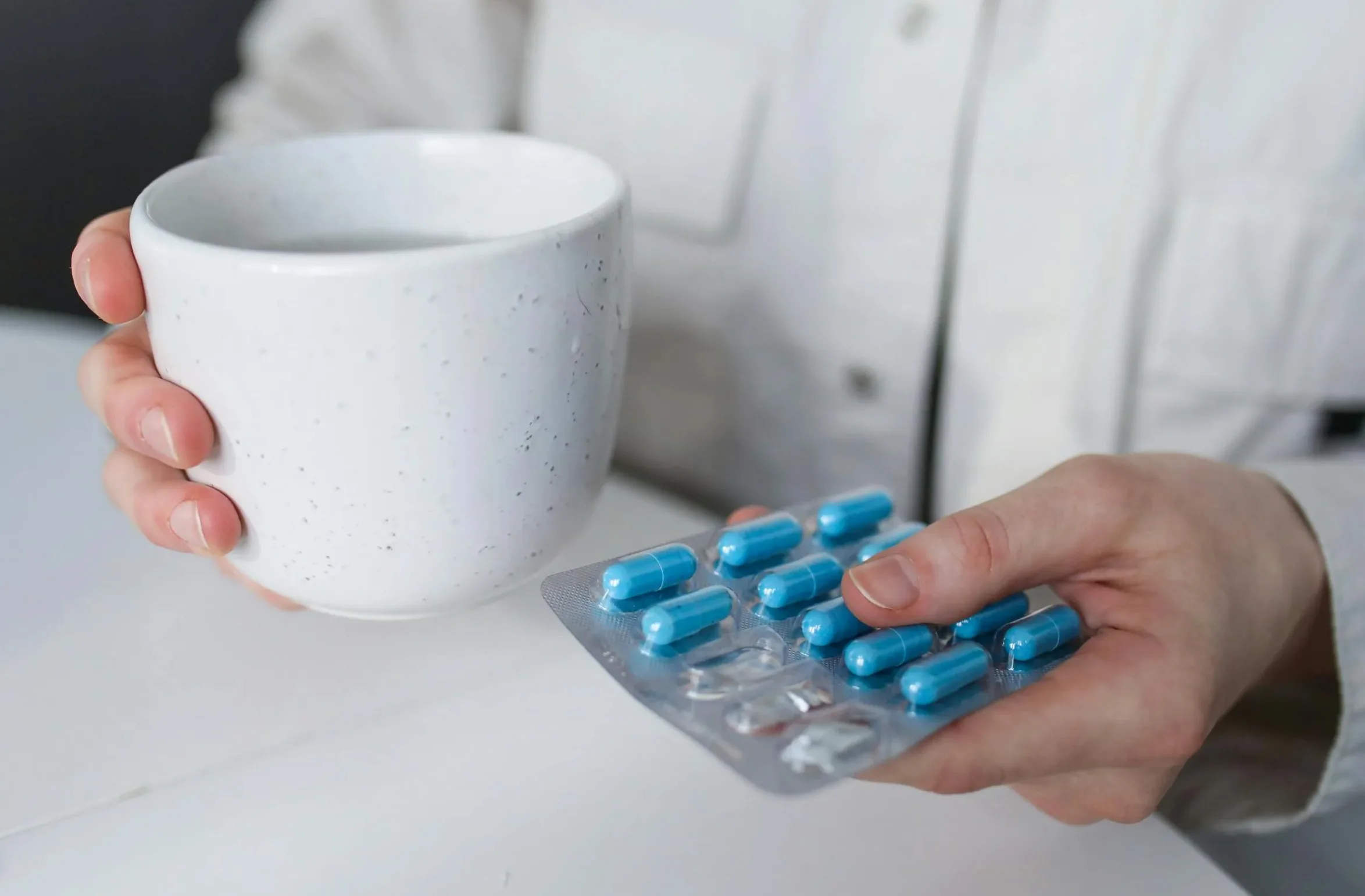
Treating Anxiety Without Medication
While anyone can feel anxious from time to time, some people experience chronic anxiety that negatively affects their livelihood. More than 40 million adults suffer from anxiety disorder in the U.S. each year. This condition is often treated with prescription medications, including benzodiazepines, beta-blockers, and various inhibitors that prevent reabsorption of serotonin by the brain. Although some medications are physically addictive, any prescription drugs can have potential side effects, including fatigue, drowsiness, and reduced mental function.
In addition, many of these medications lose their effectiveness after long-term use. At some point, a patient’s risk of addiction can outweigh the benefits, especially due to reduced efficacy. For anxiety sufferers who are concerned about side effects or are at high risk of addiction, the ability to find an effective alternative to prescription drugs is crucial. Additionally, some may simply not want to feel an ongoing reliance on a substance for relief. Fortunately, there are effective ways of treating anxiety without medication.

How Anxiety Affects Livelihood
Anxiety is a feeling of worry, dread, or fear that most people have in certain common situations, such as public speaking, a new experience, or when meeting someone for the first time. While this is normal for most people, the feelings typically subside once the event is over. For others, the sense of worry is long-term, constant, and often irrational. In these cases, finding relief from anxiety symptoms can prove difficult.
Anxiety appears in many types and forms with varying symptoms. While anxiety differs from one person to another, there are many common symptoms, including:
- Nervousness
- Restlessness
- Trouble concentrating
- Racing thoughts
- Rapid breathing
- Sweating
- Increased heart rate
- Fatigue
Some sufferers feel a sense of anxiety all the time, but many find that their symptoms increase due to certain triggers. These triggers can cause acute anxiety attacks or increase already constant anxiety symptoms. Some typical triggers include:
- Relationship conflicts
- Social situations
- Financial problems
- Perfectionism
- Self-esteem issues
- Concerns about social, environmental, or political issues
- Worry about loved ones
Anxiety can also detrimentally affect relationships, work attendance or performance, and a person’s health. It might cause one person to withdraw from situations that trigger symptoms, such as social gatherings or even checking the mail. Another person’s primary symptom may be a barrage of negative intrusive thoughts that seem to comment on the person’s every move, making them feel insecure. Many others have problems with out-of-control, racing thoughts, which make it difficult to sleep or concentrate. Anxiety is also linked to high blood pressure and other health concerns.
Natural Remedies for Anxiety
Because anxiety itself is a natural part of the fight or flight response, there are many effective ways to control symptoms that are also natural. Holistic approaches give a person more control over anxiety since symptoms can be addressed as they appear, depending on the triggering situation. Sufferers can increase effective remedies as needed in the moment without worrying about side-effects or addiction.
Is Anxiety a Chemical Imbalance?
There was once a school of thought that promoted the theory that most mental illness was a chemical imbalance in the brain that could be rebalanced with medications. While certain neurotransmitters, such as serotonin, dopamine, gamma-aminobutyric acid (GABA), and norepinephrine, certainly have a relationship with anxiety, it’s not the only thing that does. An “imbalance” usually means that one or more of these hormones is too low. However, neurotransmitters are affected by thoughts, actions, and the external environment, so changing any or all of these factors can also impact beneficial hormone levels.
Most professionals who treat anxiety now understand that there are other considerations, such as genetics, a patient’s upbringing, current life stressors, and behavioral choices, when it comes to understanding the root causes of anxiety disorder. Because these and other factors, such as diet and the amount of physical activity in which a person engages, also have an interplay with neurotransmitters, treating anxiety effectively involves looking at the whole person, not just their brain chemistry.
How to Deal with Anxiety Without Medication
Not much can be done about genetics, but professionals have found that those with anxiety can still find relief without medication by focusing on other areas that they can learn to control. This is accomplished by identifying the factors that affect neurotransmitters in each individual and teaching them to adjust their thinking and behaviors accordingly. This, in turn, can increase their mood-enhancing hormone levels naturally.
A natural approach would be especially beneficial to those who struggle with substance abuse, since some anti-anxiety medications are addictive. While there are many medications that aren’t considered physically addictive, someone in addiction recovery might find more success by avoiding reliance on any substance, addictive or not.
Anxiety Treatment Without Medication
There are many approaches to treating anxiety without medication, but they all generally involve reducing stress and increasing feel-good hormones through changes in thoughts and actions. Many of these remedies are free and can be explored in the privacy and comfort of home. However, the most effective combination of approaches also includes professional guidance.
One proven technique for natural anxiety relief is for sufferers to express their feelings in words. This can happen through shouting with no one around, quietly journaling, talking to a supportive loved one, or attending counseling with a therapist. Professional talk therapy is especially helpful for anxiety because the therapist can provide strategies and feedback as a patient learns to control their symptoms. Two important forms of talk therapy are exposure therapy and cognitive behavioral therapy (CBT), with some practitioners using a combination of the two.
Exposure therapy works by placing the patient in triggering situations but in a controlled manner in a safe environment. The person can learn to face their fears by experiencing anxiety-inducing stimulation in small amounts until it loses its effect. CBT helps individuals recognize how their thinking can produce anxiety and to develop healthier skills for managing thought patterns and behaviors.
5 Natural Anxiety Relief Techniques
Other natural methods reduce anxiety by lowering stress levels and increasing a sense of calm, such as the following:
- Deep breathing exercises: Breathing deeply, especially from the diaphragm, is effective for natural anxiety relief because it physically sends a message to the brain that there’s no danger, and it’s time to relax. Deep breathing lowers the heart rate, relaxes the muscles, and stabilizes blood pressure, all signals that there’s no reason to feel anxious
- Mindfulness and meditation: Many sufferers of anxiety are plagued with racing thoughts about previous mistakes and worrisome hypothetical scenarios. Mindfulness takes active control of thinking to force the mind to focus on minute details of the present, from the rhythm of one’s breathing to current feelings and circumstances.
- Regular physical activity: Exercise, or any physical activity, helps to reduce anxiety by giving the mind something else to focus on and also through the release of mood-boosting serotonin and endorphins. These hormones are essential for having an improved outlook and for better emotional health. Experts recommend at least 30 minutes of activity three or more days a week. While exercise is ideal for overall health, any regular physical activity, such as gardening, helps reduce stress.
- Adequate sleep and relaxation: While sleeplessness is a common problem for those who suffer from anxiety, lack of sleep can make symptoms worse. Some have found that having a regular bedtime and nighttime routine helps to prepare the brain for sleep. Part of this practice involves avoiding blue light from televisions or mobile devices around bedtime. It also helps to turn off all the lights in the house other than a small reading lamp about an hour before falling asleep because darkness signals the brain that it’s time to sleep.
Herbal supplements and teas: Many herbs are known for their medicinal benefits when it comes to reducing stress and anxiety. One example is passion flower, which studies suggest may help with insomnia and anxiety. Other herbs that have been subject of studies and shown some effectiveness include chamomile, lavender, lemon balm, and valerian. Herbs can be taken in pill form or brewed as a tea.

Integrative Approaches to Therapy
An integrative approach to anxiety treatment without medication involves combining various techniques rather than just focusing on one. The patient is treated holistically, as in the whole person, rather than just using one method, such as CBT. By using natural remedies for anxiety in conjunction with professional guidance, an anxiety-sufferer can unlock the greatest potential for long-term relief.
Because anxiety symptoms differ from person to person, integrated treatment is most effective when it’s individualized and based on the patient’s own anxiety experiences. The combination of therapy and natural remedies that bring the most benefit to one person may be very different from what helps another.
Lifestyle Changes for Anxiety Relief
A holistic approach to natural remedies for anxiety relief treats the person as a whole and acknowledges that many varying factors are involved. While activities such as exercise and a healthy sleeping routine are important, other lifestyle choices also play a role, such as:
- Eating a balanced diet: The same diet recommendations that are made for other health concerns, such as diabetes, heart disease, and obesity, also apply to anxiety. These include eating plenty of fruits and vegetables, consuming smaller portions of lean meats, and limiting salt and sugar.
- Maintaining proper hydration: While it seems simple, it’s true that studies have found that there’s a relationship between drinking plain water and having lower amounts of anxiety and depression.
- Avoiding stimulants: While caffeine and nicotine are widely understood to aggravate anxiety symptoms, some drugs, whether over-the-counter, prescription, or illicit, can also make them worse.
- Making time for self-care: This can range from taking a bath to arts and crafts. Many find solace in spending time with loved ones or pets. Mood-boosting activities that are relaxing and enjoyable help control anxiety.
- Practicing yoga: Yoga combines meditation and deep breathing with body movements that promote relaxation, reduce worry, and help people feel more calm and at peace.
- Joining an anxiety support group: A group environment provides the opportunity to learn effective coping mechanisms that others utilize and also to share personal experiences with those who understand. The feeling of being supported and understood helps to combat anxiety.
- Avoiding unnecessary stress: When helping a loved one leads a person to feeling overstressed themselves, it may be time to take a step back and make their own mental health a priority. Sometimes it’s okay to say no.
Although professional guidance with a trained therapist is the number one proven anxiety treatment without medication, anxiety sufferers can maximize the effectiveness of natural methods by combining therapy with these lifestyle changes and other natural approaches mentioned above, such as deep breathing, meditation, and exercise.
Get Help Treating Anxiety Without Medication at Beachway
If you’re on medication for anxiety and researching alternatives or if you’re looking for ways to treat anxiety for the first time, you should consider a holistic approach that includes therapy, such as Beachway Therapy Center’s. It offers inpatient programs, which are especially beneficial for those who suffer from both anxiety and addiction, and it has flexible outpatient services that are convenient for a wide variety of schedules and life circumstances. Its inpatient programs include nutrition and fitness education, yoga, and meditation instruction to give you a jump-start on making major lifestyle changes.
Beachway addresses the whole person with an evidence-based, innovative holistic approach that is integrated and individual to you. It teaches self-care and self-regulation principals, while also helping you establish a support network for continued success. It’s been helping people take the first step toward a better life since 2008. Find out more about how you can treat your anxiety without medication at Beachway Therapy Center.


